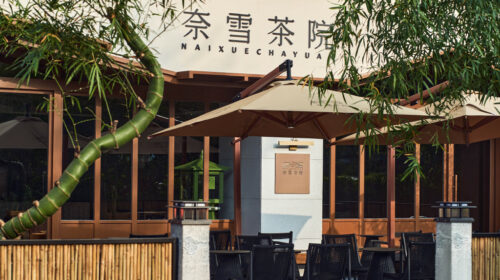FAST NEWS: Nayuki’s Same-store Order Back To Normal, Actively Expanding Smaller Teahouses

The latest: Chinese premium tea chain group Nayuki Holdings Ltd. (2150.HK) said last Friday that same-store order volume in June this year returned to the same level as year earlier, with Covid-19 coming under control in first-tier cities from mid-to-late May and due to its own aggressive marketing campaign.
Looking up: Also in its second-quarter results, the company said that, as of the end of June, the number of its regular “Nayuki teahouses” decreased by 30 to 410 quarter-on-quarter, but the number of smaller “PRO teahouses” increased by 80 to 494.
Take Note: As of June 13, the company’s same-store revenue in Shanghai had returned to only 70% of the revenue level before the outbreak of the pandemic in the big city.
Digging Deeper: Like other operators in China’s food and beverage industry, Nayuki has been affected by the Covid-19 outbreak for the past two years, and has therefore changed its business strategy since 2021 by reducing the number of its “Nayuki teahouses,” which typically have higher rents and labor costs, and adding more smaller “PRO teahouses” with automated tea-making machine and pre-baked products in commercial and residential areas. Last year, its Nayuki teahouse numbers dropped to 446 from 485, but the number of PRO teahouses, which are only 80 to 200 square meters in size, jumped to 371 from 6, providing room for the company to reduce prices and compete for customers with major rivals such Heytea.
Market Reaction: Nayuki ‘s tea share price fell Monday, closing 3.2% down at the midday break to HK$6.1, 69% lower than the offer price of HK$19.80 shares listed at in June last year.
Translation by Jony Ho
To subscribe to Bamboo Works free weekly newsletter, click here





